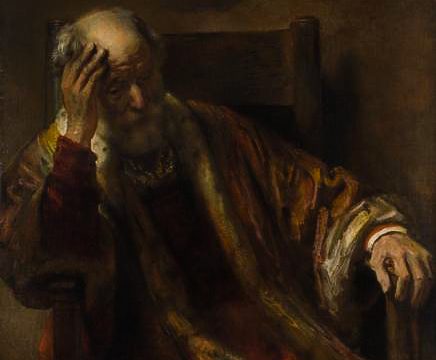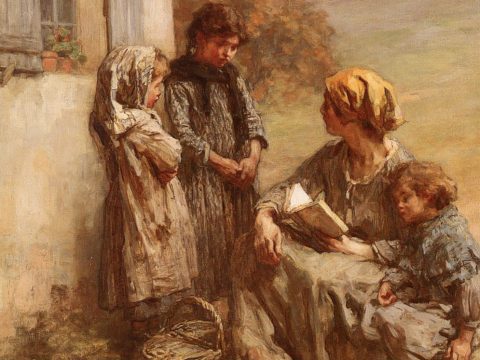
And though it may be truly affirmed that neither Satan nor our own consciences can ever aggravate unto us too much the intrinsical sinfulness, the heinousness and vileness of our sins in their due and proper colours, and true aggravations of them, which we can never come to see enough, as not to hate nor loathe and mourn for as we ought; yet Satan and our own consciences may, in the representation of our sins, put such false apprehensions and such aggravations upon them as may make us apprehend too much about them; as when it is suggested that they are such as are not compatible with the state of grace, or that they are utterly unpardonable. He may likewise use them as inductions to prove a false conclusion.
And also, although our sins, if truly, can never be enough represented, if it be in order to drive a man more to God’s grace and unto Christ: yet to present them singly and alone, and to hold the mind and intention of it so to them as to cause us to forget our own mercies, and in such a manner as thereby God’s mercies and all comforts are hidden and concealed from us; this is that is Satan’s practice, and is the cause of this deep bondage we thus here speak of.
And in this respect that name, κατήγορος, the accuser, is given this evil spirit in a direct and full opposition to that special name and office of the Holy Ghost, παράκλητος, the comforter or pleader for us: because as the Holy Ghost maketh intercession in our own hearts unto God for us, and upon true repentance helpeth us to make ‘apologies’ for ourselves, as the word is, 2 Cor. 7:11, and comforteth us by discovering ‘our graces given us of God,’ as 1 Cor. 2:12, and by pleading our evidences, and witnessing with our spirits that we are the sons of God; so on the contrary, Satan is κατήγορος, an accuser, by laying to our charge the guilt of our sins, by impleading our evidences, misrepresenting our estates, thereby to deject us and ‘swallow us up with sorrow,’ as 2 Cor. 2:7.
And further; because in these accusations his scope is to misrepresent our estates to us, and falsely to disquiet us, therefore he is yet more especially called διάβολος, a slanderer, as one that falsely and lyingly calumniateth and slandereth all our graces, all God’s dealings towards us, all our dealings towards him; slandering our persons, our estates to us, charging us to be hypocrites, unsound, and carnal, and counterfeit Christians, still misconstruing all unto the worst. Which false calumnies and charges of his, I take most properly to be those ‘darts’ mentioned Eph. 6:11, which are there said more especially to oppose our faith; and therefore faith is there said to quench them. From which trade of his forging darts of calumnies, he hath his name διάβολος, a slanderer, from διαβάλλω; a metaphor it is, from casting darts, (for the slanderous calumnies of the tongue are ‘as a maul, and a sword, and a sharp arrow,’ as Solomon speaks, Prov. 25:18; their teeth spears and arrows, Ps. 57:4;) and such are these kind of Satan’s temptations and accusations against us, even as darts and arrows that wound and pierce, and run through the passions and affections, that strike the soul through and through with fears.
His name, πειράζων, the tempter, is from πειρω, to pierce; because such are his darts, so sharpened, and flung with that force, as they are fitted to pierce, and enabled to run through. And besides the sharpness of the darts themselves, they are said to be fiery, as making double way for themselves; for a piece of iron, though blunt, yet if fired red-hot, it runs through without resistance.
Satan, he is that great general of the whole powers of darkness in us; and therefore even the forces of the guilt of sin, the proper seat of which is the conscience, he hath some command over, as well as of the power of sin in other members: and therefore as he can muster up and set on fleshly lusts which fight against the soul, and provoke and back them in their assaults upon us, so he can clap on the chains of guilt and bondage upon our consciences.
Thomas Goodwin. A Child of Light Walking in Darkness.



